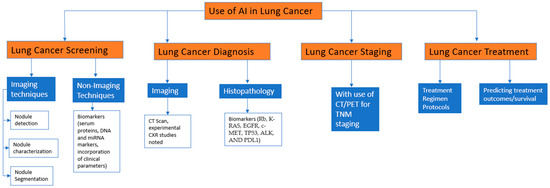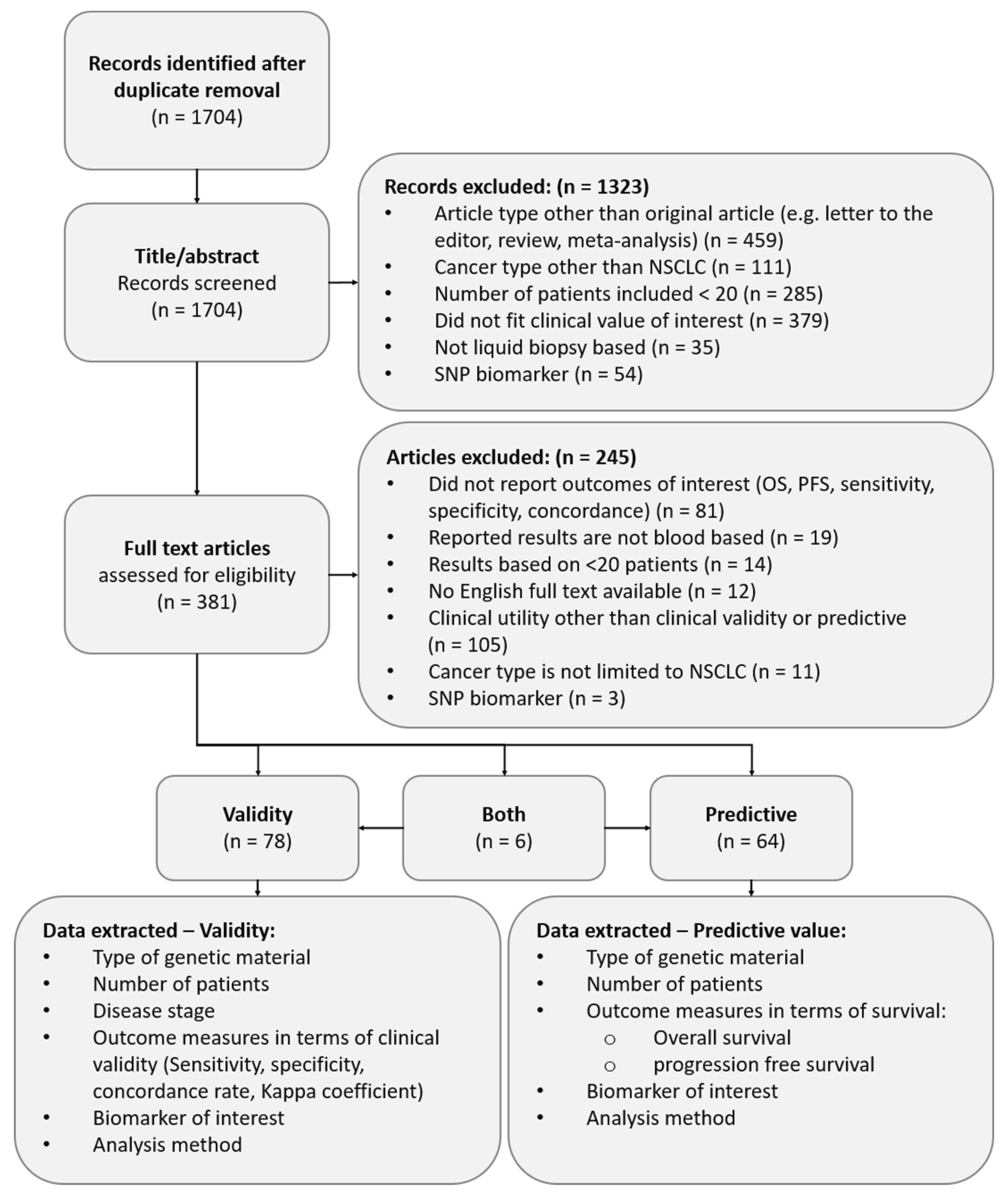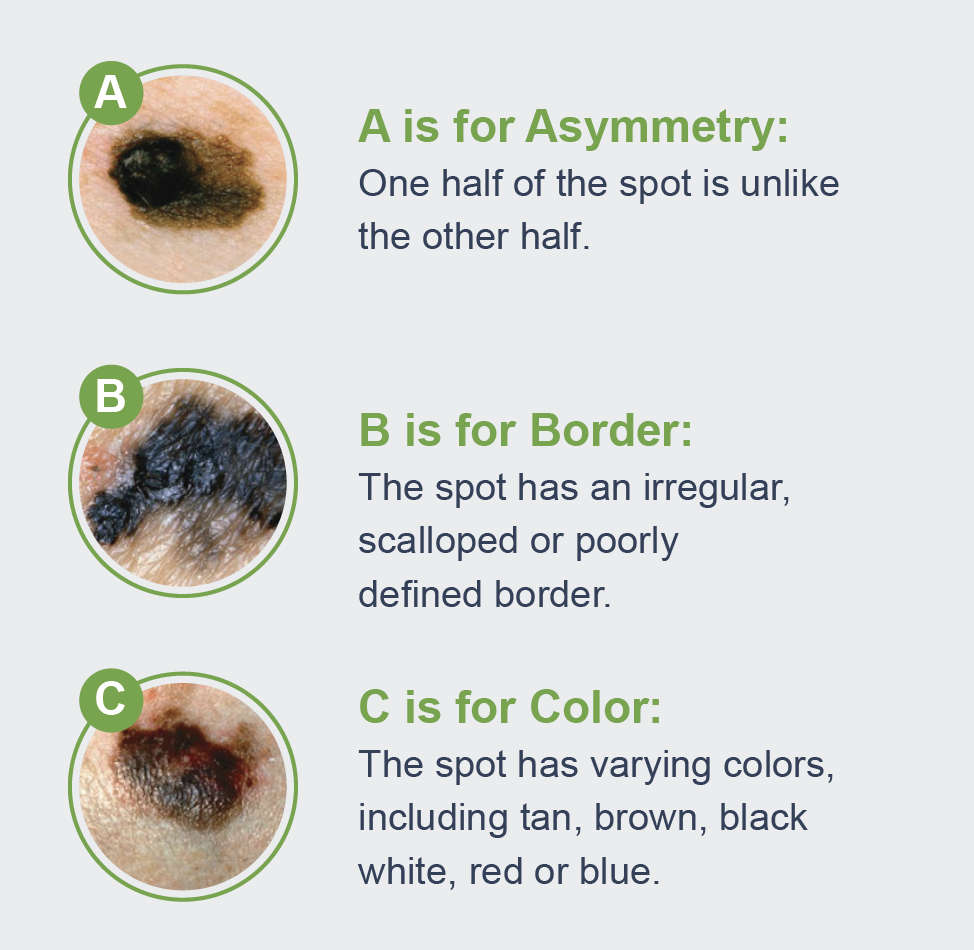Cancers, Free Full-Text
Por um escritor misterioso
Last updated 12 fevereiro 2025

Lung cancer remains one of the leading causes of cancer-related deaths worldwide, emphasizing the need for improved diagnostic and treatment approaches. In recent years, the emergence of artificial intelligence (AI) has sparked considerable interest in its potential role in lung cancer. This review aims to provide an overview of the current state of AI applications in lung cancer screening, diagnosis, and treatment. AI algorithms like machine learning, deep learning, and radiomics have shown remarkable capabilities in the detection and characterization of lung nodules, thereby aiding in accurate lung cancer screening and diagnosis. These systems can analyze various imaging modalities, such as low-dose CT scans, PET-CT imaging, and even chest radiographs, accurately identifying suspicious nodules and facilitating timely intervention. AI models have exhibited promise in utilizing biomarkers and tumor markers as supplementary screening tools, effectively enhancing the specificity and accuracy of early detection. These models can accurately distinguish between benign and malignant lung nodules, assisting radiologists in making more accurate and informed diagnostic decisions. Additionally, AI algorithms hold the potential to integrate multiple imaging modalities and clinical data, providing a more comprehensive diagnostic assessment. By utilizing high-quality data, including patient demographics, clinical history, and genetic profiles, AI models can predict treatment responses and guide the selection of optimal therapies. Notably, these models have shown considerable success in predicting the likelihood of response and recurrence following targeted therapies and optimizing radiation therapy for lung cancer patients. Implementing these AI tools in clinical practice can aid in the early diagnosis and timely management of lung cancer and potentially improve outcomes, including the mortality and morbidity of the patients.

Cancer-Free Creations

Cancer-Free with Food: A Step-by-Step by Werner Gray, Liana
CA: A Cancer Journal for Clinicians - Wiley Online Library

PDF) Predictors of recurrence free survival for patients with stage II and III colon cancer

Cancers, Free Full-Text

What to Expect During a Full-Body Skin Exam

Pancreatic Cancer Action Network – Research, Patient Support, Resources

Precede Consortium > Home

FORCE - Facing Hereditary Cancer Empowered home page
Detection of HPV-16 DNA by PCR in histologically cancer free lymph nodes from patients with cervical cancer. - Abstract - Europe PMC

Noninvasive detection of any-stage cancer using free glycosaminoglycans

Transcriptional landscape of cellular networks reveal interactions driving the dormancy mechanisms in cancer
Recomendado para você
-
Masha and the Bear Pizza Maker - Apps on Google Play12 fevereiro 2025
-
 Papa's Taco Mia! - 🕹️ Online Game12 fevereiro 2025
Papa's Taco Mia! - 🕹️ Online Game12 fevereiro 2025 -
 What's your goal when starting a new gameria ? : r/flipline12 fevereiro 2025
What's your goal when starting a new gameria ? : r/flipline12 fevereiro 2025 -
 Roy, Flipline Studios Wiki12 fevereiro 2025
Roy, Flipline Studios Wiki12 fevereiro 2025 -
 Papa's Pizzeria To Go!: Intro + Day 112 fevereiro 2025
Papa's Pizzeria To Go!: Intro + Day 112 fevereiro 2025 -
 Papa's Burgeria Gameplay Part 3: Line Cook12 fevereiro 2025
Papa's Burgeria Gameplay Part 3: Line Cook12 fevereiro 2025 -
 Merge Cakes Pastry Saloon From Poki, A Parallel Version12 fevereiro 2025
Merge Cakes Pastry Saloon From Poki, A Parallel Version12 fevereiro 2025 -
Pizzeria Poli12 fevereiro 2025
-
PAPA'S CHEESERIA (DAY 56) #papascheeseria #papasgames #papasgameplay12 fevereiro 2025
-
 THE BEST 10 Hawaiian Restaurants near MT BETHEL RD, WARREN, NJ 07059 - Yelp (Updated December 2023)12 fevereiro 2025
THE BEST 10 Hawaiian Restaurants near MT BETHEL RD, WARREN, NJ 07059 - Yelp (Updated December 2023)12 fevereiro 2025
você pode gostar
-
You met the owner!!!!! (EASY!) - Roblox12 fevereiro 2025
-
 Jennifer Carta, Victorious Wiki12 fevereiro 2025
Jennifer Carta, Victorious Wiki12 fevereiro 2025 -
 Google One - Member benefits that help you get more out of Google12 fevereiro 2025
Google One - Member benefits that help you get more out of Google12 fevereiro 2025 -
 ESPETÁCULO NO FLORIPA - Krikor Mekhitarian Vs Juliane Dias - Floripa Chess Open - Rodada 112 fevereiro 2025
ESPETÁCULO NO FLORIPA - Krikor Mekhitarian Vs Juliane Dias - Floripa Chess Open - Rodada 112 fevereiro 2025 -
 Grand Theft Auto V (for Xbox One) Review12 fevereiro 2025
Grand Theft Auto V (for Xbox One) Review12 fevereiro 2025 -
 Pokemon X And Y Guidebook And Accessories Revealed - Pokemon Xy Official Guide Pdf Download Free - Free Transparent PNG Download - PNGkey12 fevereiro 2025
Pokemon X And Y Guidebook And Accessories Revealed - Pokemon Xy Official Guide Pdf Download Free - Free Transparent PNG Download - PNGkey12 fevereiro 2025 -
 Caixa Milk Bolofofos - MiniDobras12 fevereiro 2025
Caixa Milk Bolofofos - MiniDobras12 fevereiro 2025 -
 After Neymar's tears, PSG will hope Champions League final was no one-off - Stad Al Doha12 fevereiro 2025
After Neymar's tears, PSG will hope Champions League final was no one-off - Stad Al Doha12 fevereiro 2025 -
 Assassinos da Lua das Flores', a história universal de Scorsese sobre 'choque de culturas' - SWI12 fevereiro 2025
Assassinos da Lua das Flores', a história universal de Scorsese sobre 'choque de culturas' - SWI12 fevereiro 2025 -
 Traitors Lyrics - SAVEUS - Only on JioSaavn12 fevereiro 2025
Traitors Lyrics - SAVEUS - Only on JioSaavn12 fevereiro 2025


